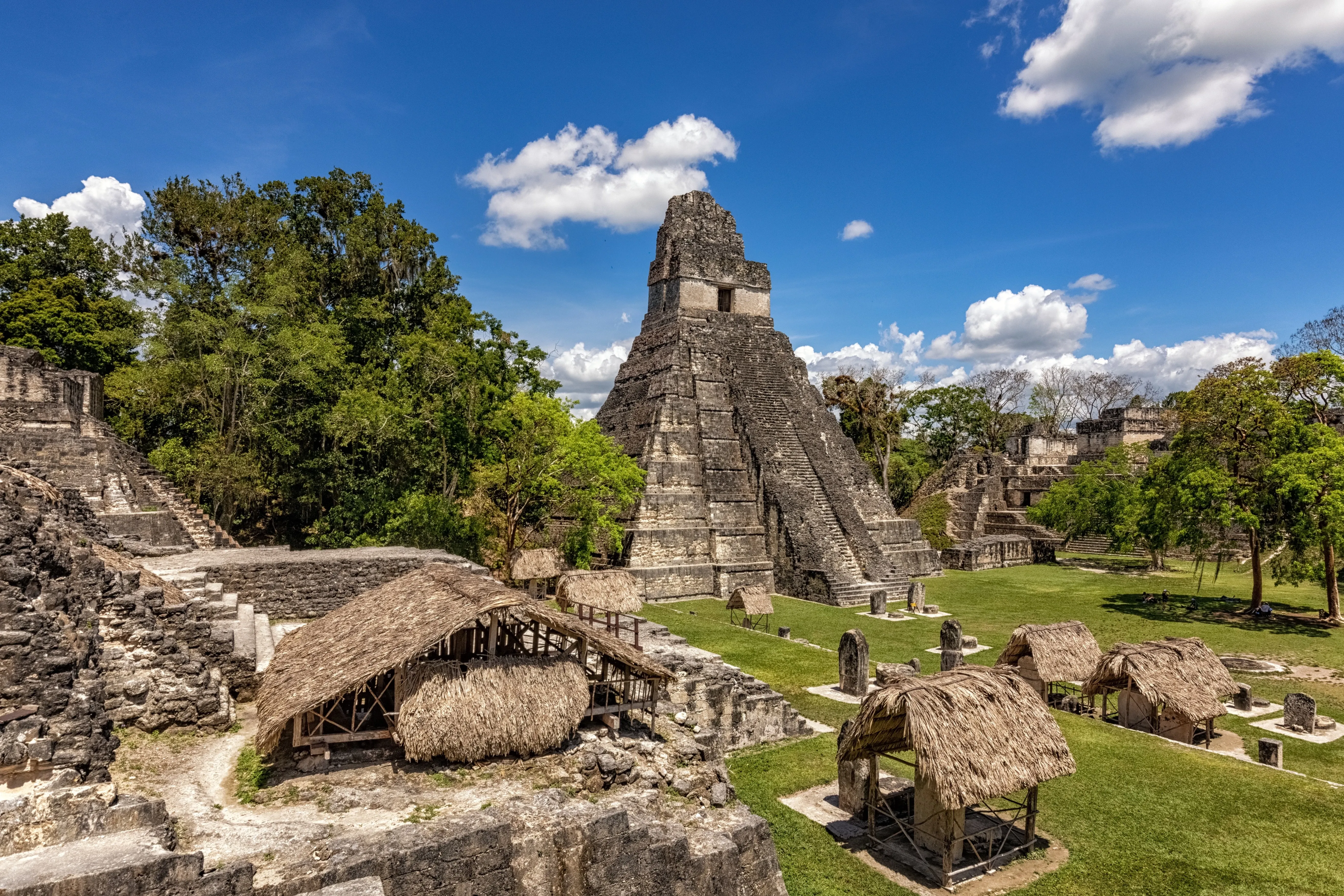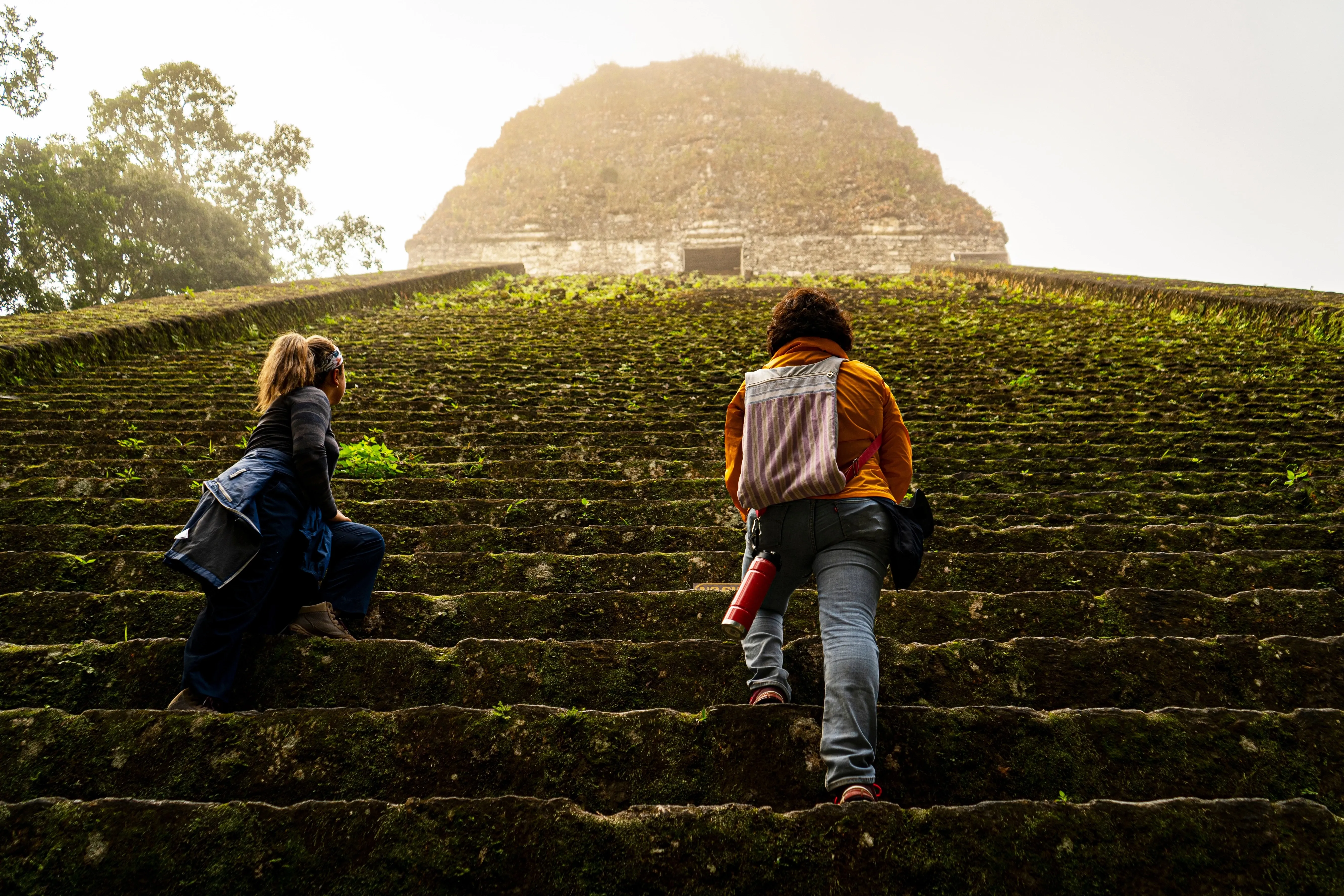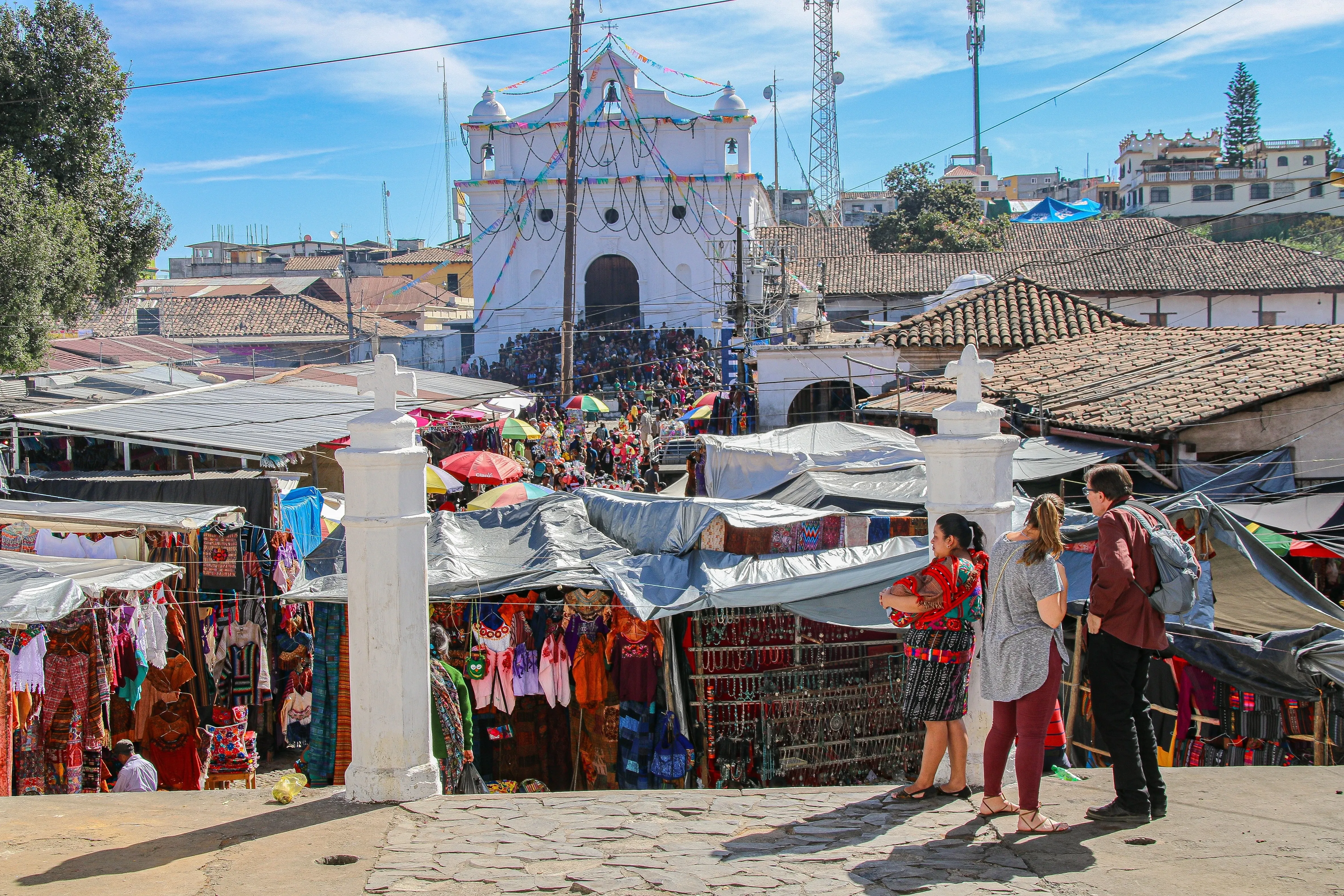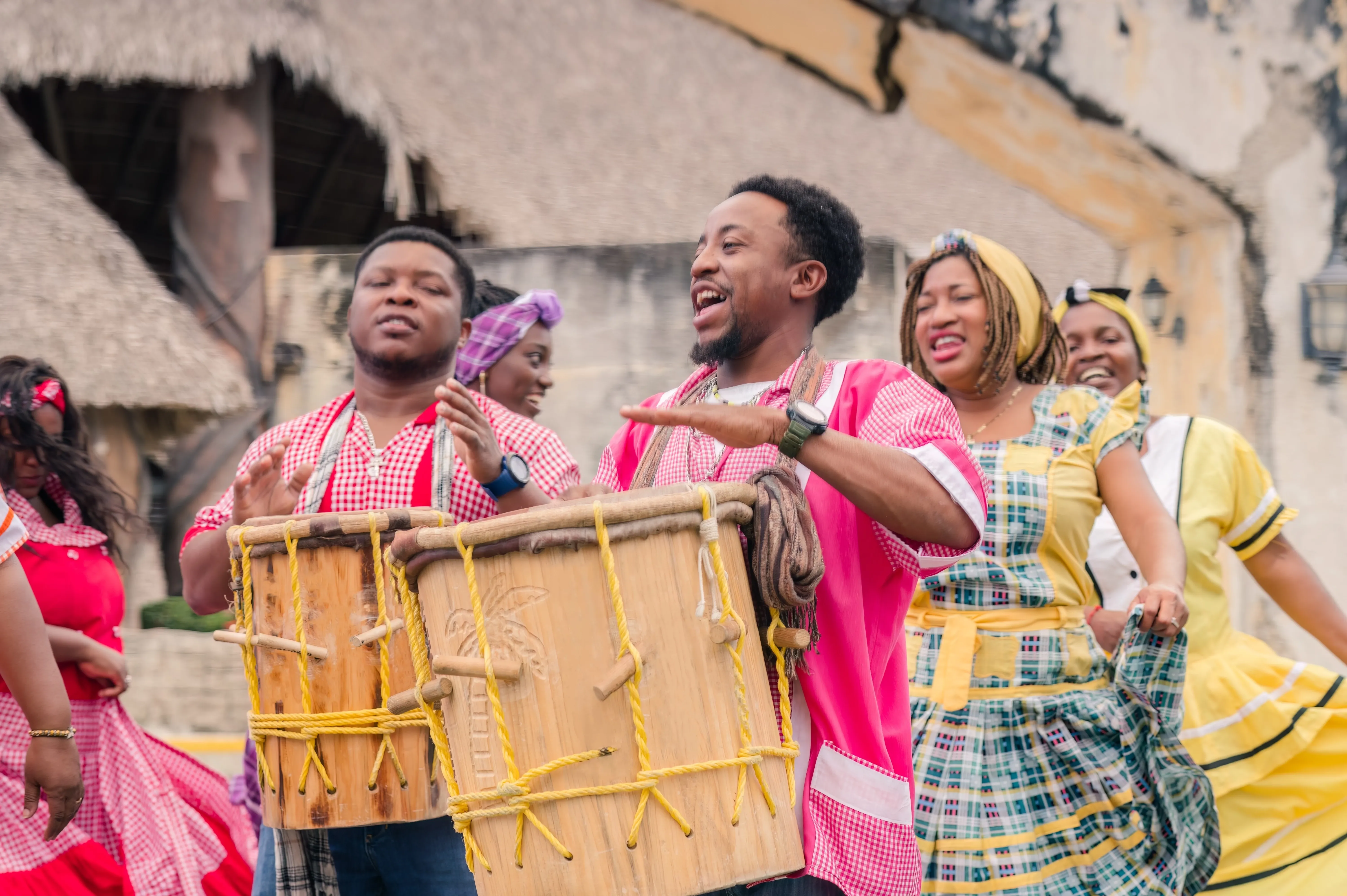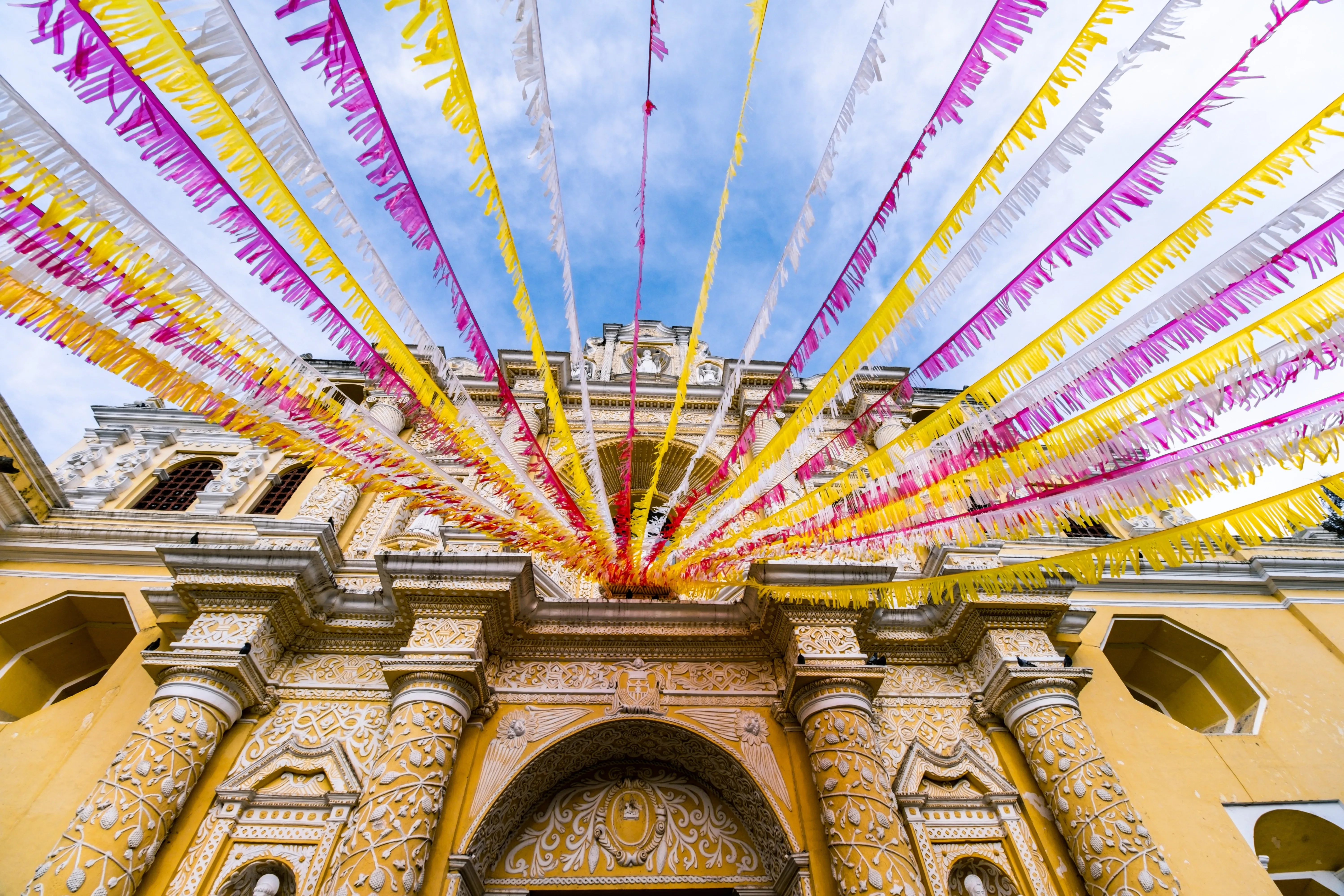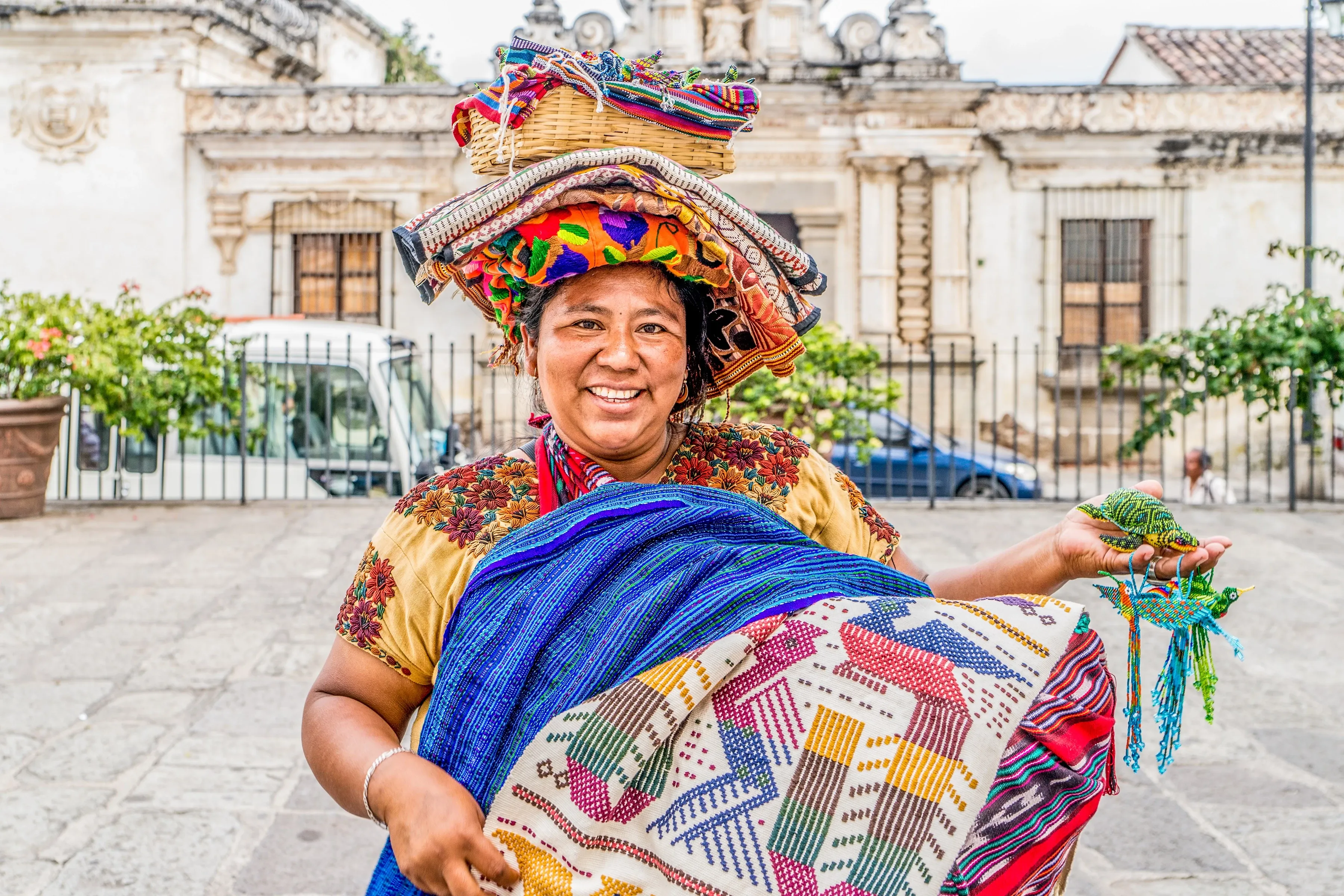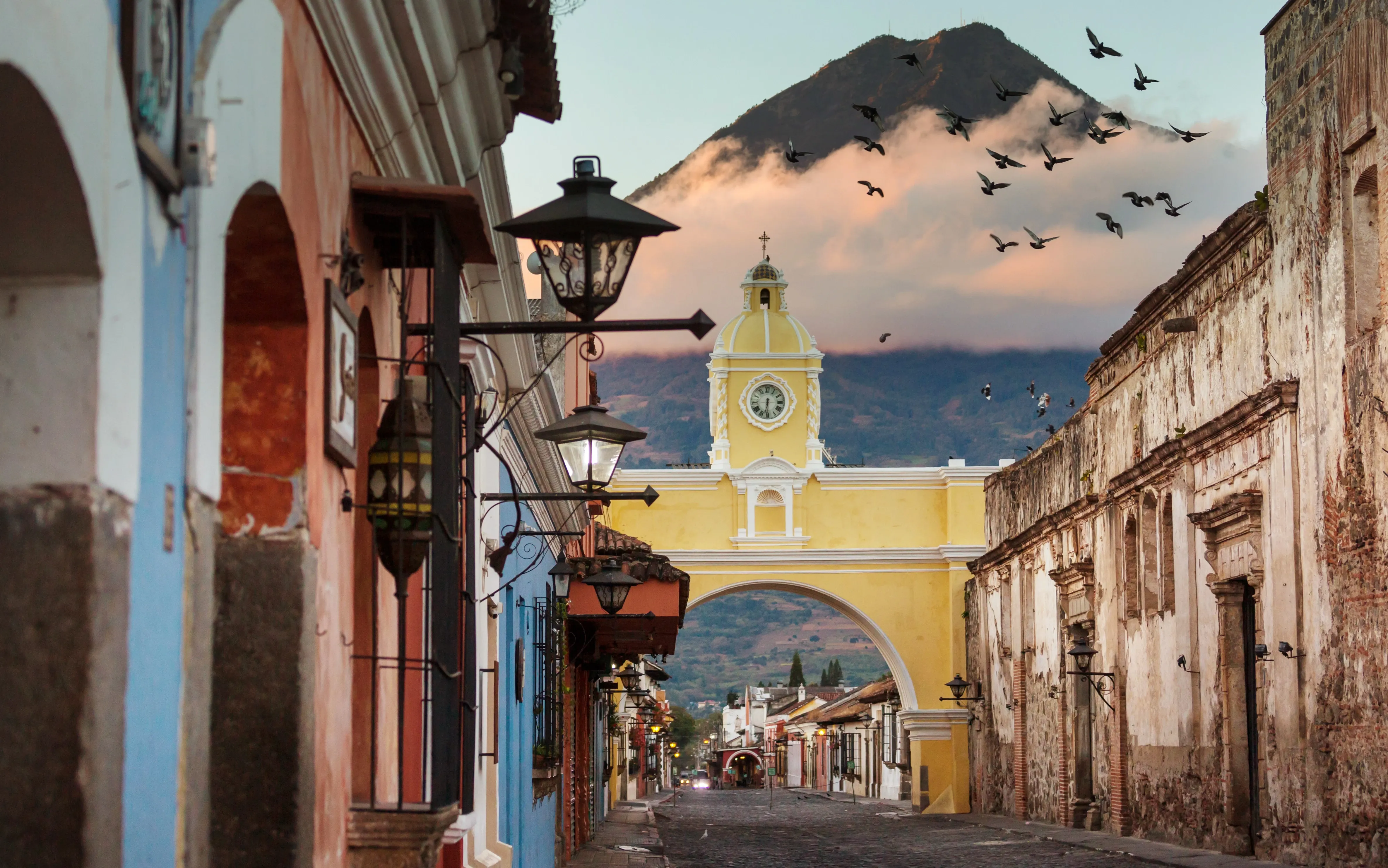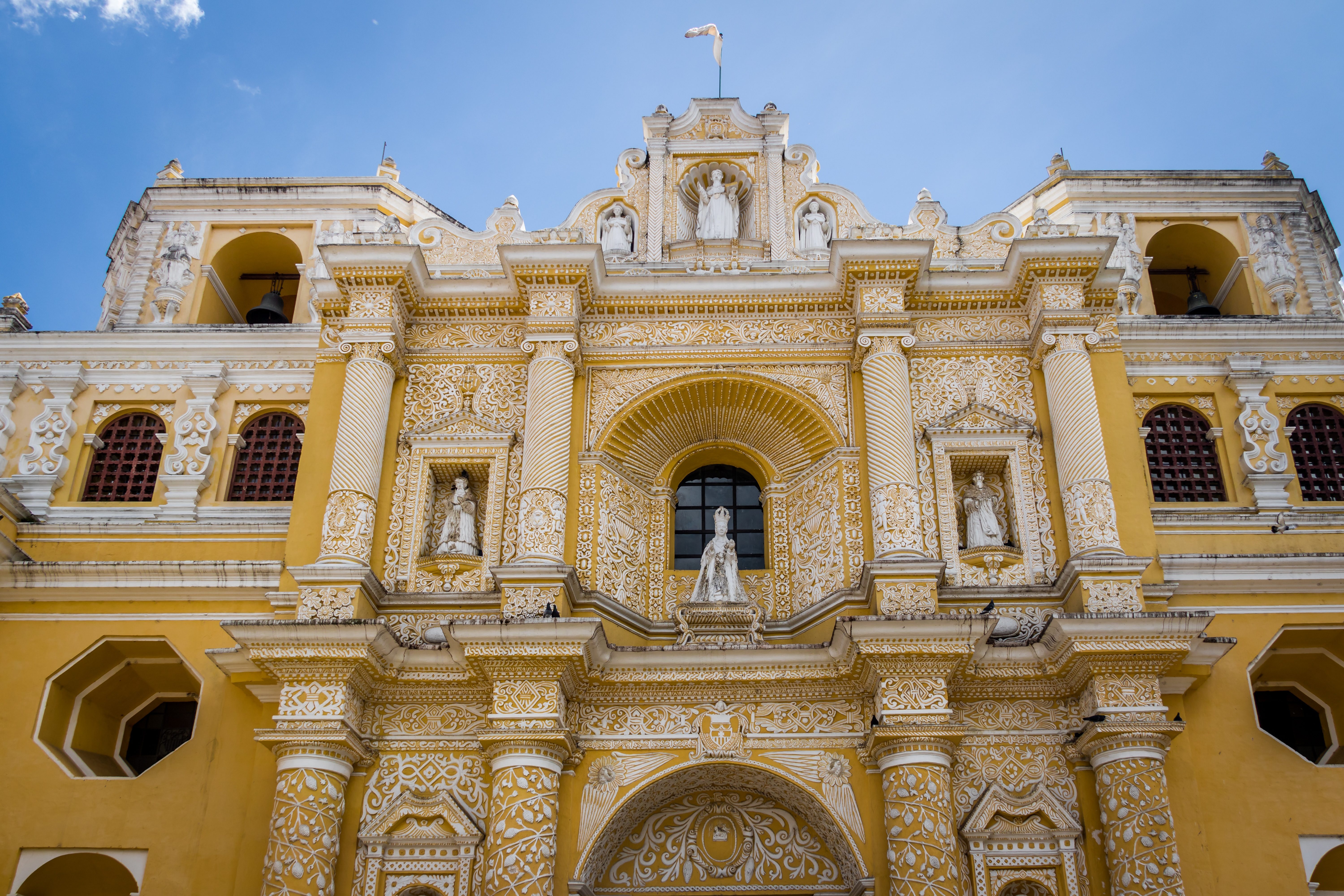Guatemalan etiquette for tourists
Guatemala, a captivating country in Central America, is celebrated for its stunning landscapes, including volcanic mountains, lush rainforests, and ancient Mayan ruins.
From the colonial charm of Antigua to the rich history of Tikal, Guatemala is a place where ancient traditions meet vibrant, modern culture. Its diverse population, which includes Maya, Garífuna, Xinca, and Ladino communities, offers a unique cultural mix that influences the country's customs, beliefs, and social behaviour.
As you prepare to experience Guatemala’s beauty and history, understanding the etiquette is essential for smooth interactions with locals and to show respect for their culture. This guide will help you navigate the social norms, ensuring your trip is both enjoyable and respectful.
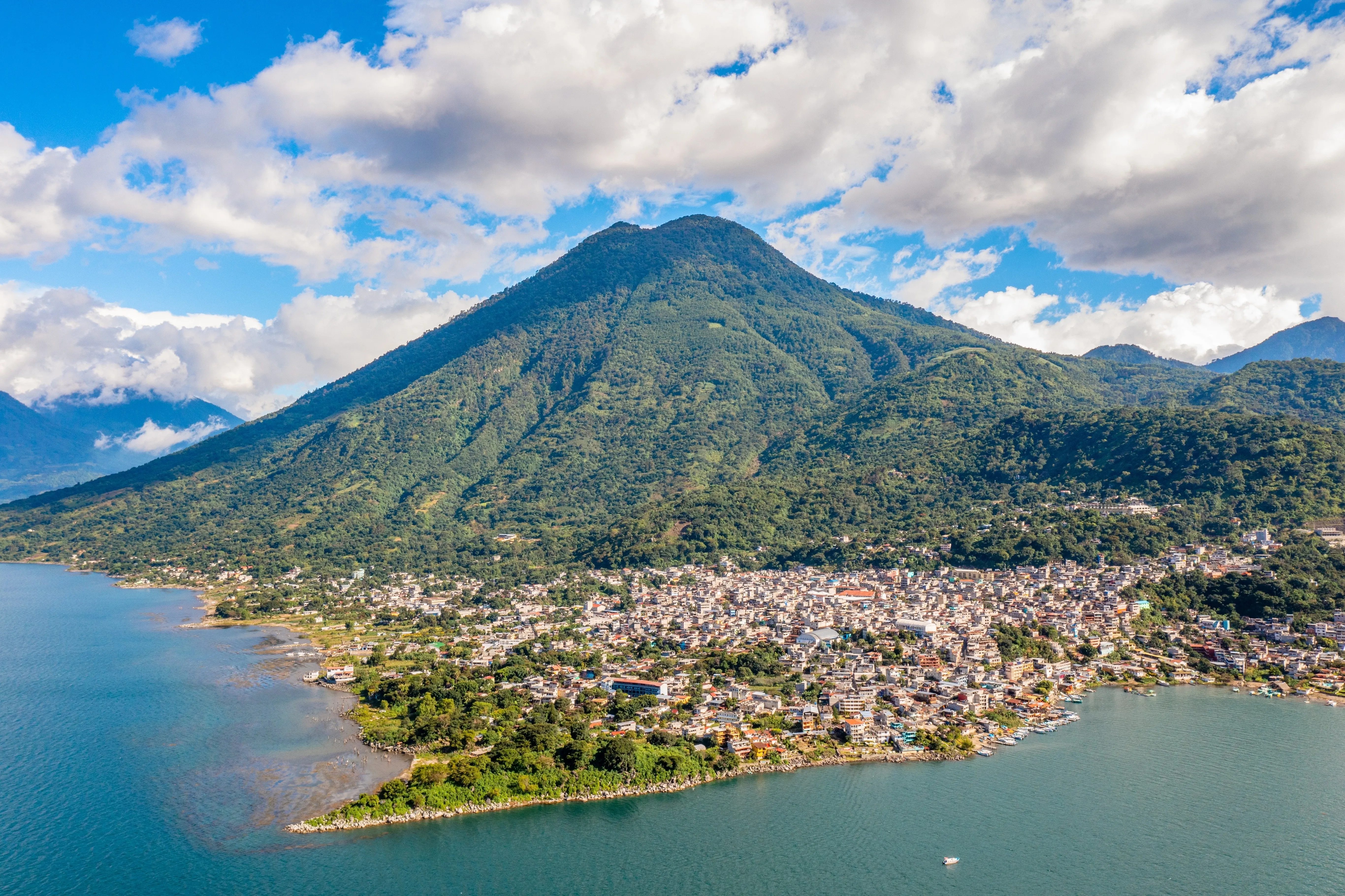
Greeting someone in Guatemala
In Guatemala, greetings are an essential part of social interactions, reflecting warmth, respect, and community. They are often seen as a sign of politeness and hospitality, setting the tone for positive conversations and relationships.
Common greetings in Guatemala include “Buenos días” (Good morning), “Buenas tardes” (Good afternoon), and “Buenas noches” (Good evening/night). As in many Latin American cultures, these greetings are used throughout the day and can also be accompanied by a warm “¿Cómo está?” (How are you?), or “¿Cómo te va?” (How’s it going?). These questions are not just formalities but show genuine interest in the other person’s well-being.
Addressing people with the correct titles is important in Guatemala, especially when meeting someone for the first time or in professional settings. Use “Señor” (Mr.) or “Señora” (Mrs.) followed by their last name to show respect. To address elders in the community, Don (Sir) and Doña (Ma’am) are the appropriate titles. For those with academic or professional titles, such as “Licenciado” (for university graduates), “Doctor” or “Doctora” (for medical or academic professionals), these titles should be used in formal interactions.
In terms of physical greetings, Guatemalans tend to be warm and affectionate. A handshake is common, and in more familiar or informal settings, a hug or a kiss on the right cheek is typical, especially between friends and family. When greeting in a group, it is polite to greet each person individually with either a handshake or a light hug. Be mindful of the context, as the level of familiarity will influence the type of greeting.
»In Guatemala, every corner reveals a new story waiting to be told.«
Language Do’s and Don’ts
Spanish is the dominant language in Guatemala, spoken by the majority of the population, but the country is also home to over 20 indigenous languages, such as K'iche', Q'eqchi', and Mam, particularly in rural areas. These languages are recognized alongside Spanish, and efforts are made to preserve them through bilingual education programs.
When it comes to language use in Guatemala, there are a few important do’s and don’ts to keep in mind:
Do’s in Guatemala:
- Learn basic Spanish phrases: Locals appreciate when visitors make an effort to learn key phrases like "Buenos días" (Good morning), "Por favor" (Please), and "Gracias" (Thank you).
- Acknowledge indigenous languages: If you're traveling to rural areas, you may encounter indigenous languages. While most people will speak Spanish, showing respect for these languages can make a positive impression.
- Use formal address in respectful settings: Guatemalans place a strong emphasis on formal speech. Always use “usted” instead of the more informal “tú” when addressing someone you don’t know well, especially elders and authority figures.
- Be gracious when accepting or declining offers: Guatemalan culture is extremely hospitable and generous. When being offered something, be it a dish of food, a place to stay, or otherwise, regardless of if you accept or decline, it is important to do so by expressing deep gratitude for the offer. If you take their offer, be sure to offer many thanks and compliments, and if you decline, please do so politely to show respect.
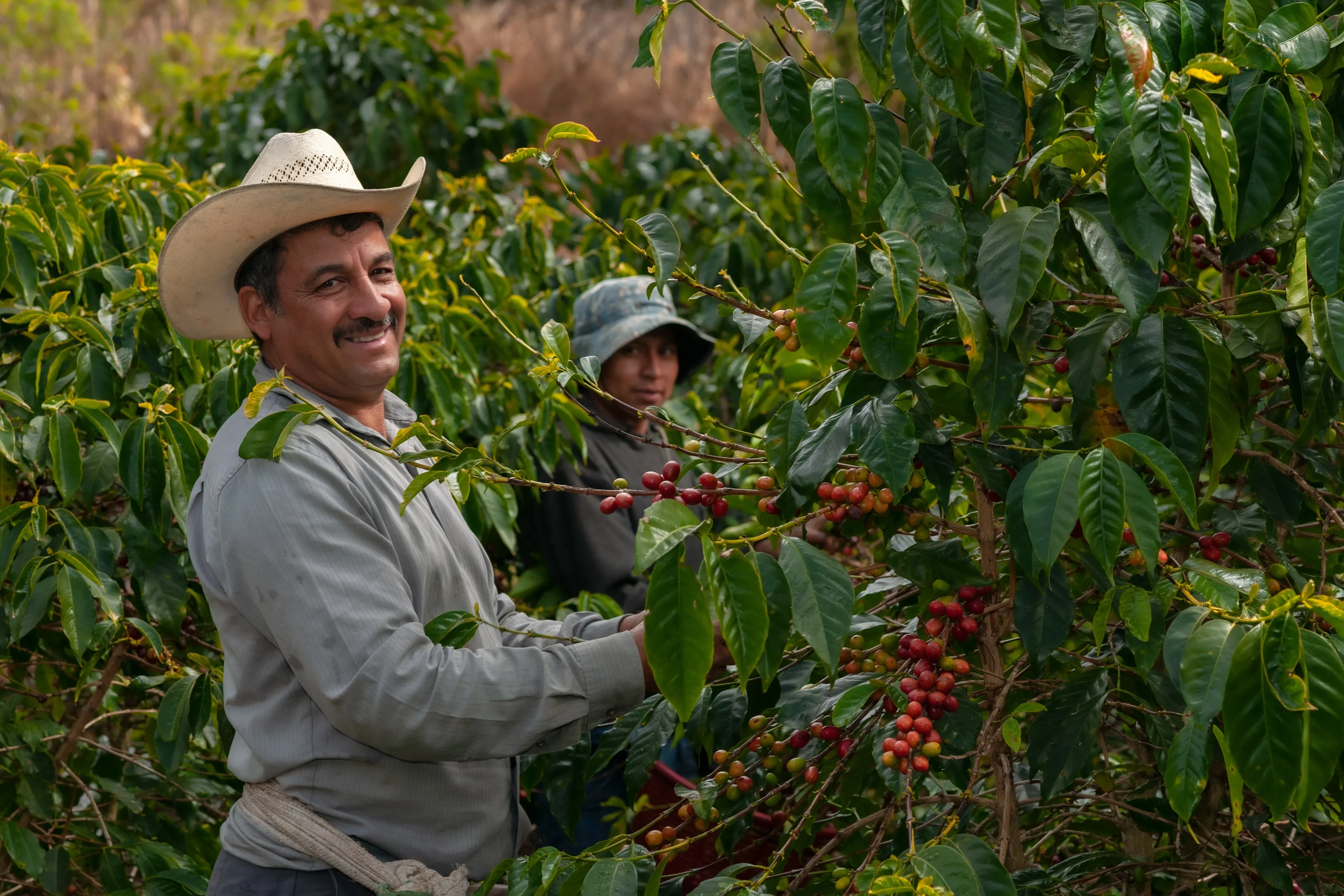
Don’ts in Guatemala:
- Don’t use informal slang too early: While slang is common in Guatemala, terms like “pisto” for money or “chucho” for dog should be used carefully, as they may not be understood or appreciated in more formal or unfamiliar settings.
- Don’t interrupt or overwhelm with questions: Guatemalans appreciate thoughtful, respectful conversation. Avoid interrupting and allow others to speak fully before asking questions.
- Don’t assume everyone speaks English: While English is understood in tourist areas, it’s not as widely spoken in rural regions. It's always best to try and use basic Spanish or learn some key phrases in indigenous languages when traveling outside major cities.
- Don’t overuse first names: Titles are important in Guatemala. Using titles like “Señor” (Mr.), “Señora” (Mrs.), Don (Sir) and Doña (Ma’am) and even professional titles like “Licenciado/a” shows respect. Avoid using just first names unless invited to do so.
Dining habits and behaviour in Guatemala
Dining in Guatemala is a warm and social affair, emphasizing hospitality and respect for tradition. When invited to a Guatemalan home, and to bring a small gift for your host. Upon arrival, greeting everyone in the room is customary, often with a handshake or a kiss on the right cheek for familiar settings. This act of acknowledgment is essential to starting the meal on a positive note.
At the table, it’s important to wait for the host to indicate seating arrangements and begin the meal. After everyone has been served their food, it is polite to say “Buen provecho”, meaning “good appetite”, or “enjoy your meal”. Guatemalans value visible table manners, so keeping your hands on the table rather than in your lap is a sign of attentiveness. Sharing food and conversation is a key aspect of dining culture, so engaging in friendly, light-hearted discussions is encouraged. Complimenting the food is always appreciated, as many dishes are prepared with great care and pride.
Guatemalan cuisine offers a variety of traditional dishes that reflect the country’s rich cultural heritage. One of the most beloved dishes is Pepián, a hearty stew made with meat, vegetables, and a thick, spicy sauce of roasted seeds and spices. Kak'ik, a turkey soup with a vibrant red broth, is another favourite, especially among the indigenous communities. For a lighter meal, Tamales—made from corn dough and wrapped in banana leaves or corn husks—are a popular choice, often filled with meats, vegetables, or even sweet ingredients.
Street food also plays a significant role in Guatemala’s culinary scene. Chuchitos, small tamales served with tomato sauce, and Rellenitos, sweet plantains filled with black beans, are widely enjoyed snacks. For dessert, Mole de Plátano, a dish of fried plantains with a sweet chocolate sauce, is a must-try.
Tap water in Guatemala is not drinkable. It is highly recommended to buy bottled or purified water to limit the risks of getting parasites. This is also helpful when considering ordering meals with uncooked ingredients that might have been washed with tap water, for example salad.
Dining in Guatemala is more than just eating; it’s an opportunity to build relationships, share stories, and celebrate the flavours of the land. By respecting the local customs and savouring the traditional dishes, you can immerse yourself in the warmth and vibrancy of Guatemalan culture.
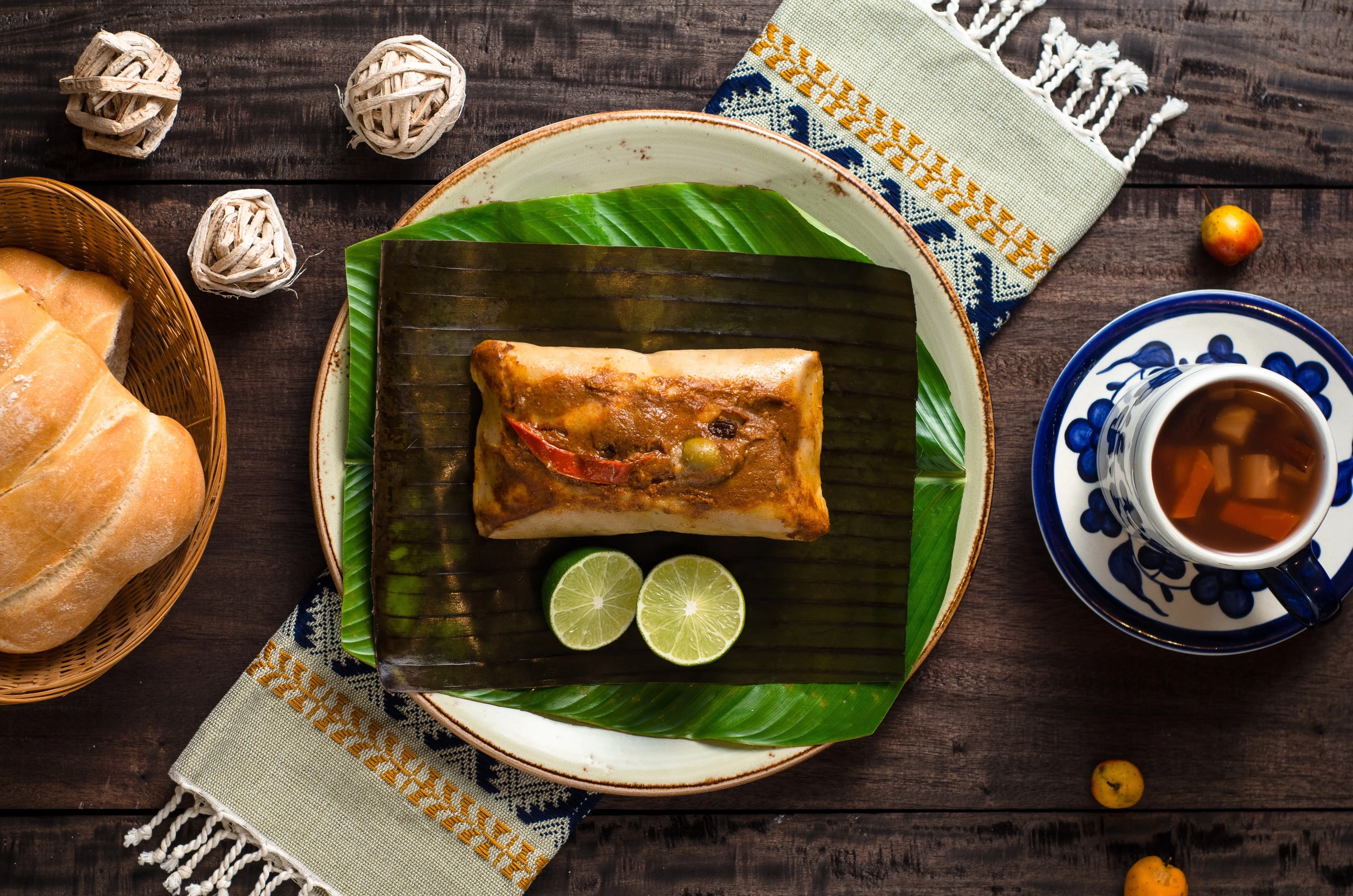
Tipping etiquette in Guatemala
The local currency in Guatemala is the Quetzal (GTQ). It’s recommended to carry some cash, as smaller businesses and rural areas may not accept credit cards, though card payments are increasingly common in cities and tourist areas. Keeping smaller bills and coins on hand is especially useful for tipping and smaller purchases.
Tipping in Guatemala is appreciated but not strictly obligatory. In restaurants, leaving a tip of 10% of the bill is customary, especially in mid-range to upscale establishments. Some restaurants may already include a service charge in the bill, so it’s a good idea to check before adding a gratuity.
For casual dining spots, cafés, or small eateries, rounding up the bill or leaving a few Quetzales as a tip is a thoughtful gesture. Taxi drivers typically do not expect tips, but rounding up the fare is a common way to show appreciation for good service. At hotels, tipping porters around 5 to 10 Quetzales per bag is customary, and housekeeping staff often appreciate a similar amount per night for their services.
If you’re unsure about tipping norms in a particular situation, don’t hesitate to ask a local or staff member for advice. Guatemalans are generally gracious and will appreciate any thoughtful gesture you make to recognize good service.
Extented tips for visiting Guatemala
Beyond the general etiquette around dining, language, and tipping, there are several unique cultural practices in Guatemala that travelers should be mindful of.
#1 Punctuality and "Hora Chapina"
While punctuality is expected in formal settings, Guatemalans often follow a more relaxed approach to time, known as “Hora Chapina.” Social gatherings or events may start later than scheduled, especially in more informal settings. It’s best to remain flexible and patient, and instead of worrying about the delay, enjoy the relaxed pace of life.
#2 Respect for indigenous communities and traditions
Guatemala is home to a large number of indigenous communities, with Mayan culture remaining a significant part of the country’s identity. When visiting these communities, always approach with respect and humility.
#3 Photos and photography Etiquette
While Guatemala’s landscapes and vibrant culture offer many opportunities for stunning photos, always be mindful of the cultural significance of what you’re capturing. Asking for permission before taking photos of people is a sign of respect. It’s especially important when photographing indigenous people, as many hold traditional beliefs about the spiritual energy captured in images. Some people may feel uncomfortable or disrespected if they are photographed without asking.
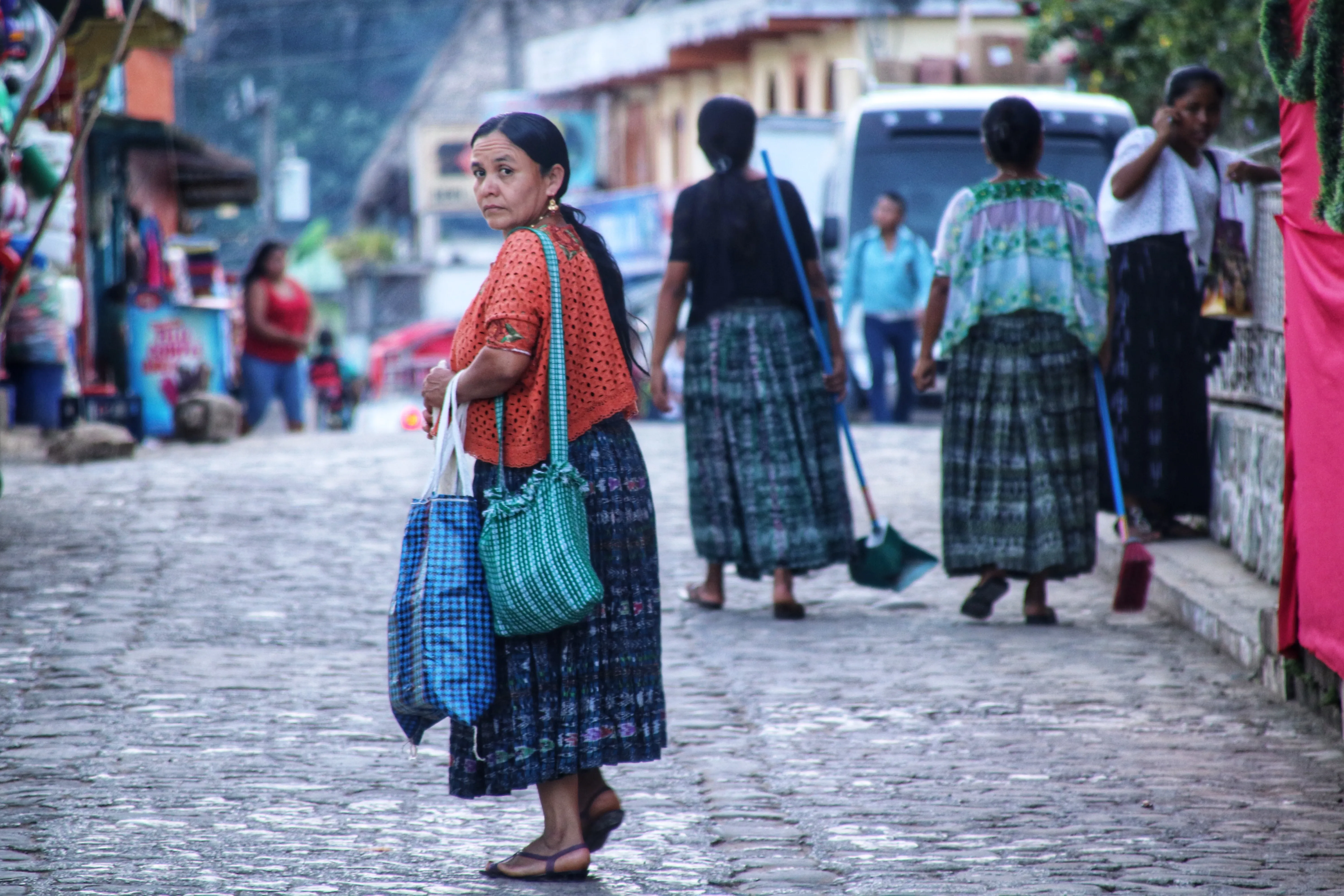
#4 Touching the head in Mayan culture
In Mayan culture, the head is considered the most sacred part of the body, as it is believed to be the seat of the soul. As a result, touching someone’s head is seen as disrespectful. This belief extends to both children and adults, and it’s important not to pat someone’s head, even as a gesture of affection. When interacting with children in particular, avoid this gesture. Respecting this cultural norm shows your understanding of the deep spiritual and cultural values held by the Mayan people.
#5 Appropriate dress
In Guatemala, dressing elegantly is an important cultural value, especially in cities and formal settings. Locals often wear well-fitted clothing as a sign of respect for the occasion, and some upscale restaurants may enforce a dress code. Smart casual attire is generally acceptable, but avoid overly casual clothing like shorts or flip-flops. When visiting religious sites, modest clothing is expected—cover shoulders, wear longer garments, and remove hats as a sign of respect
#6 For female travellers in Guatemala
As a female traveller in Guatemala, be aware of cultural norms influenced by traditional gender roles and machismo. Solo female travellers may face unwanted attention, especially in nightlife or busy public areas, so it’s best to travel in groups, ideally with both men and women. In rural areas, women are often held to higher standards of behaviour, for example refraining from drinking or staying out late. To avoid attracting negative attention or feeling uncomfortable, it is best to follow the norms that you observe to ensure a safe, enjoyable experience.
#7 Be mindful of safety
Although Guatemala is a beautiful and vibrant destination, it is important to be aware of your surroundings, particularly in tourist-heavy areas or when traveling alone. Petty theft can be common, so avoid displaying valuables, and take care when using your phone or camera in public. Always use reputable transportation services, and consider hiring local guides for excursions to more remote or rural areas. Trusting local advice and using common sense will ensure a safer and more enjoyable visit.
Quick Facts about Guatemala
- Official language: Spanish (22 Mayan languages are also spoken)
- Form of government: Unitary presidential republic
- Population: 18,5 million
- Capital city: Guatemala City
- Currency: Guatemalan Quetzal (GTQ)
- Time zone: Central Standard Time (CST)
- Summer months: June to August
- Winter months: December to February
- Climatically warmest temperatures: 30°C
- Climatically coldest temperatures: 10°C
- Telephone area code: +502
- Standard voltage of electricity: 110 V
Reminder: Brush up on your history
Guatemala’s history is a rich tapestry of ancient civilizations, colonial struggles, and modern transformation. The country’s cultural roots stretch deep into the past, shaped by indigenous peoples who have lived in the region for thousands of years. Early civilizations such as the Maya thrived in the region long before European contact, leaving behind impressive monuments, cities, and knowledge of astronomy and mathematics.
The Maya civilization flourished from approximately 2000 BC to the 9th century AD, with notable cities like Tikal, Uaxactún, and Copán. Their advanced achievements in architecture, art, and writing are still celebrated today. The Maya’s intricate calendar and pyramids stand as testaments to their influence on Mesoamerican history.
The arrival of Spanish conquistadors in the 16th century, led by Pedro de Alvarado, marked the beginning of a colonial era. The Spanish imposed a harsh regime, exploiting indigenous populations through encomienda systems and converting many to Christianity. This period of domination lasted nearly 300 years and left lasting impacts on Guatemala's social and cultural landscape.
Guatemala declared its independence from Spain in 1821, joining the Mexican Empire briefly before becoming part of the Central American Federation. The subsequent decades were marked by political instability, military coups, and civil wars. The most significant conflict was the Guatemalan Civil War (1960-1996), a brutal 36-year struggle between the government and various insurgent groups, which led to widespread violence, human rights violations, and the displacement of many communities.
Since the peace accords were signed in 1996, Guatemala has worked toward rebuilding and modernizing, though social inequality, corruption, and violence continue to challenge the country’s development. Today, Guatemala is a country that celebrates its indigenous heritage while navigating the complexities of modernization, with a vibrant culture that reflects the blending of ancient traditions and contemporary influences.
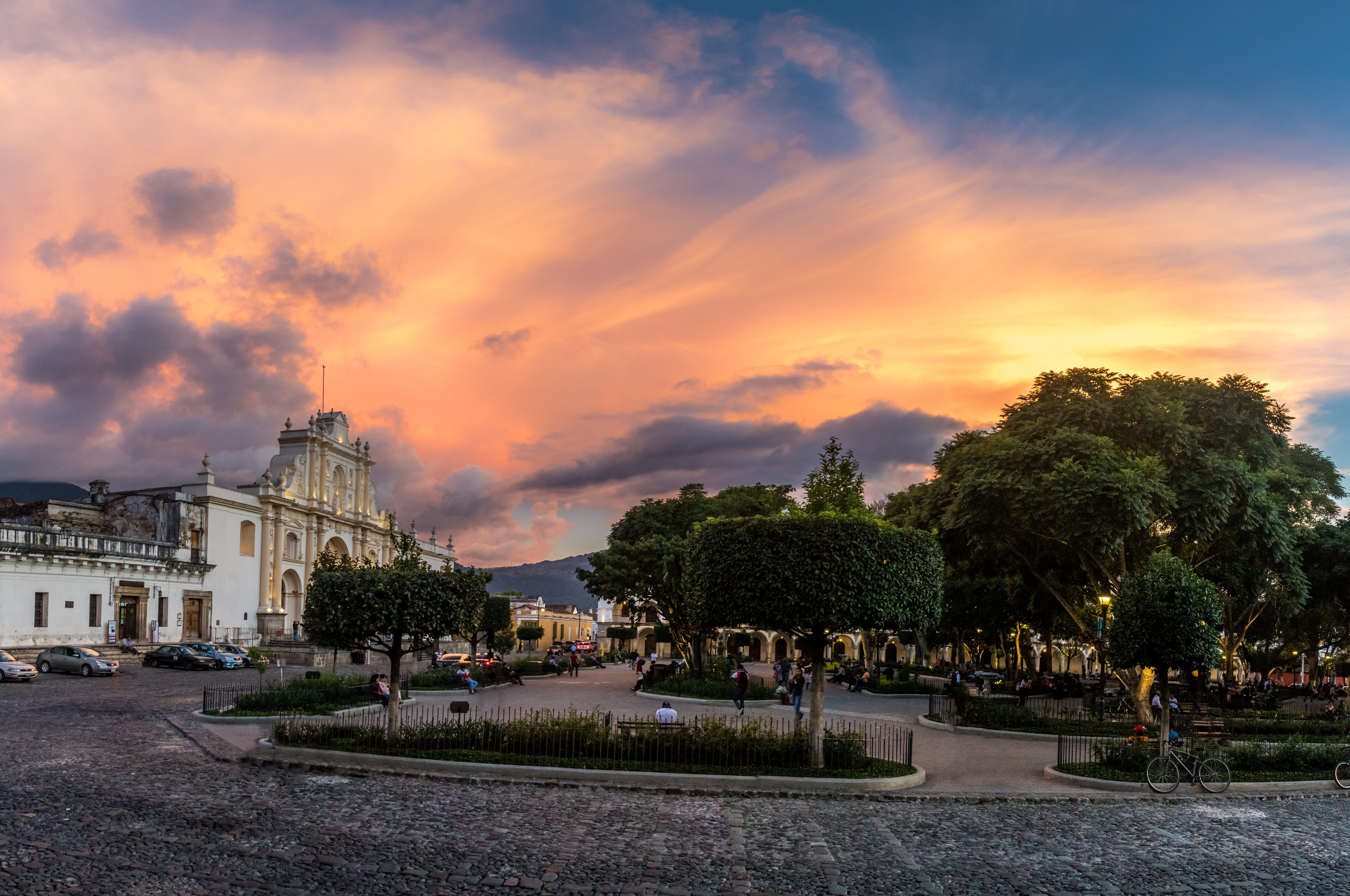
Guatemala’s etiquette summarised in a nutshell
In Guatemala, etiquette is rooted in deep respect for tradition and personal connections. When greeting someone, offer a warm handshake or a light kiss on the cheek, particularly among friends and family. Dressing neatly and elegantly is highly valued, especially in cities and formal settings, where dress codes may apply. Always address others with courtesy, using titles like Señor or Señora to show respect.
When visiting religious sites, be sure to wear modest clothing and remove your hat as a sign of reverence. Tipping is appreciated but not obligatory, and if invited to a home, it’s thoughtful to bring a small gift like flowers or chocolates. Be mindful of personal space, and never touch someone’s head, as it is considered sacred in many indigenous cultures. Always approach Guatemalan customs with warmth, humility, and respect for the rich cultural heritage that shapes this beautiful country.
Source references:
Together Woman Rise
Original Travel
Lonely Planet
Sign up for the newsletter
By clicking on “Subscribe now” I will subscribe to the Conscious Explorer newsletter with all the information about mindful travel. Information on the success measurement included in the consent, the use of the shipping service provider MailChimp, logging of the registration and your rights of revocation can be found in our privacy policy.

